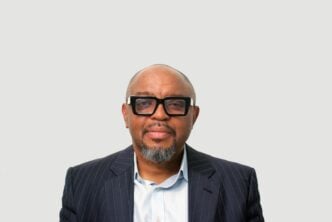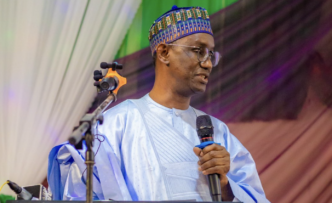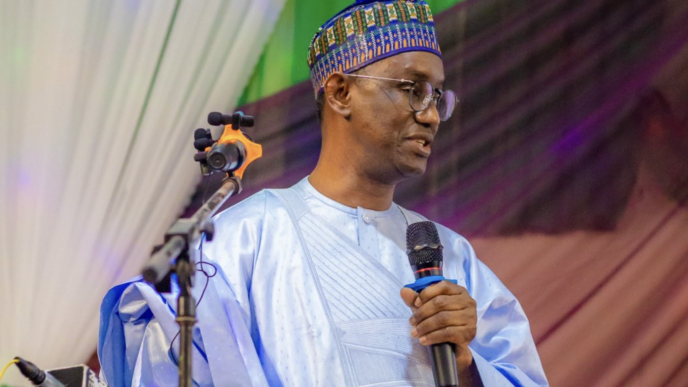BY ADEDOKUN SEYI
“How old are you?”
That was the only question that stood between me and a promising job opportunity. When I answered honestly, the recruiter dismissed me outright, even though the vacancy had not listed any age requirement. When I completed my National Youth Service Corps (NYSC) in 2022 at 28 years old, I was optimistic about my prospects. Like many fresh graduates, I began applying for jobs that matched my qualifications. Yet I quickly noticed a recurring pattern: most vacancies demanded candidates under 26 or 27. By the time I clocked 30, I started sensing that my age was under constant surveillance.
Job descriptions that once sought below 27 suddenly began specifying 27–29. And when I recently reached out to a recruiter who had not listed an age requirement, the very first question I was asked was about my age. My answer ended the conversation before it had even begun. The recruiter told me not to beat myself up, promising that my resume would be kept for future consideration, an old promise I had heard far too often, and one that rarely leads anywhere.
Advertisement
Research consistently shows that older applicants, starting from even their early 30s, are less likely to be selected. A Swedish field experiment found callback rates drop substantially for applicants in their early 40s, and worsen near retirement age. Just a ten-year age difference can reduce callbacks by roughly five percentage points. A meta-analysis spanning applicants aged 40 to over 66 revealed odds ratios ranging from 0.38 to 0.89, meaning older candidates are only 38% to 89% as likely to receive callbacks compared to 29-35-year-olds. Subtle cues in job adverts, phrases like “young and dynamic” or “recent graduate”, discourage older professionals. Experimentally, such stereotypes reduce older applicants’ responses nearly as much as explicit discrimination. In the UK, 36% of 50–70-year-olds feel disadvantaged in job applications; 14% believe they were rejected because of age, and 18% have hidden their age on CVs. In Europe, revealing older age in Belgium reduced interview invitations by 39%, in France, by 72%
Despite being in their productive years, older applicants frequently remain unemployed longer. Among Americans aged 55+, 27.4% were long-term unemployed, compared to 20% of those aged 16–54. A 67-year-old ex-payroll specialist applied to nearly 3,700 jobs over seven years without success, even with a degree and decades of experience. In another, a 52-year-old with $620,000 in savings still found only lower-paying roles, underscoring age bias even amid a modest national unemployment rate of 4.2%. A recent survey shows 34% of hiring managers hold biases against candidates over 60, and 36% against Gen Z.
According to a Lagos Business School study in 2023, 42 percent of graduates aged 28 or older reported being rejected from banking and oil-sector roles despite meeting competency requirements. More disturbingly, 68 percent of those excluded experienced depression. The National Bureau of Statistics reports youth unemployment at 53.4 percent, with those aged 25–34 facing 37.2 percent unemployment. These figures show that age-based restrictions not only waste human capital but also worsen Nigeria’s unemployment crisis and undermine organisational culture by stripping workplaces of diversity.
Advertisement
According to the National Bureau of Statistics, 7.5 million Nigerians aged 25–34 were unemployed as of 2020, the single largest unemployed group in the country. For many, systemic delays such as ASUU strikes mean graduation and NYSC completion occur well beyond the age caps imposed by employers. In effect, Nigerians are punished twice: first by educational delays, then by discriminatory hiring practices. Nigeria’s unemployment rate is officially 5.0% under its revised methodology, but youth unemployment remains disproportionately high. And for those considered “too old,” even within their early 30s, the odds are stacked cruelly. International data sheds light on how damaging ageism can be. A 2023 meta-analysis published in Collabra: Psychology showed that applicants aged 40–65 are between 11% and 62% less likely to receive callbacks compared to those aged 29–35. In France, disclosing an older age on job applications reduced interview invitations by a staggering 72%. Even in the United States, 27.4% of unemployed workers aged 55 and above remain stuck in long-term unemployment, compared to 20% of younger workers.
From the perspective of human resource management, the fixation on age reveals a misunderstanding of performance metrics and workforce planning. Recruitment and selection should be competency-based, focused on skills, qualifications, and behavioural fit, not arbitrary chronological limits. A truly strategic HR function values knowledge transfer, employee relations, and long-term organisational performance. By contrast, age screening reduces the available talent pool and damages employer branding.
For Nigeria, where millions of graduates emerge yearly into a labour market already strained, age caps create a cruel paradox. A graduate who completes NYSC at 28 may find themselves locked out of opportunities only two years later, regardless of competence. What sense does it make to demand “not more than 26” for entry-level roles when the average Nigerian student, navigating strikes and systemic delays, often finishes university well into their mid-20s? What logic is there in shelving talent at 30 when our economy is desperate for innovation, productivity, and growth?
Globally, the United States passed the Age Discrimination in Employment Act (ADEA) to protect workers 40 and above. In 2023, Colorado enacted the Job Application Fairness Act, banning employers from requesting age on initial applications. The European Union has its Equal Treatment in Employment and Occupation directive. Lawsuits have been filed against companies for adverts that explicitly demand “recent graduates.” In Germany, under its “Silver Economy” policies, firms are incentivised to hire older workers, recognising the value of institutional memory.
Advertisement
Singapore legally requires companies to re-employ workers up to 67 years of age, embedding workplace inclusion into human resource policy. In the United States, the Age Discrimination in Employment Act prohibits rejection based on age, and further reforms such as the Protecting Older Workers Against Discrimination Act are under discussion. Meanwhile, countries like Belgium and France have exposed through controlled studies how older applicants are up to 72 percent less likely to be called for interviews, fuelling global debate about competency-based selection versus discriminatory hiring.
The Nigerian Senate’s 2023 policy resolution to abolish age limits in job adverts is commendable, but implementation must go further than statements of intent. Legally, Nigeria is lagging. Section 42 of the Constitution prohibits discrimination, and the 2017 National Employment Policy directs employers not to use age requirements unless absolutely necessary. Yet the Labour Act is silent on age discrimination in hiring. The Senate passed a resolution in 2023 urging employers to drop age limits in job adverts, but enforcement has been nonexistent.
Meanwhile, banks, civil service roles, and private companies continue to make age a blunt tool for filtering candidates. What is needed is enforceable sanctions for companies that discriminate on age grounds. Just as gender equality has been mainstreamed into HR policies, so too must age equality become a non-negotiable requirement for organisations seeking to be recognised as fair employers. It is time for Nigerian policymakers, the Federal Ministry of Labour and Employment, and professional bodies like the Chartered Institute of Personnel Management (CIPM) to act decisively.
Despite weak explicit protection in labour law, Nigeria’s Constitution, Section 17(3)(a) of the 1999 Constitution, prohibits discrimination based on “circumstances of birth,” which legal experts argue could extend to age-based exclusion. Still, enforcement is rare. The Senate, in a resolution in July 2023, urged the abolition of age limits in job adverts and called on the government to draft policies ensuring equal opportunity in employment. Advocacy groups and victims have occasionally challenged discriminatory practices; one court case in 2021 nullified a bank’s policy limiting entry-level roles to applicants aged 26 or younger. But these measures remain patchy.
Advertisement
A Jobberman survey in 2023 found that nearly 60 percent of applicants screened out due to age reported depression, while 40 percent abandoned job hunting altogether. This is not only a crisis of individual motivation but a drain on organisational talent pipelines. Human resource management is supposed to foster engagement, motivation, and employee development. Yet discriminatory recruitment policies erode these objectives and create alienation before an employment relationship can even begin. Age-based requirements in job adverts should be prohibited by law. Recruitment should be restructured around competence, skills, and character. Employers must be mandated to conduct blind screening processes that remove age markers at the application stage. And HR professionals must be retrained to recognise ageism as a form of discrimination no less damaging than gender or ethnic bias.
Nigeria needs an Age Equality in Employment Bill, with enforceable sanctions for employers who embed age restrictions in job adverts. Recruitment processes must shift toward competency frameworks, measuring knowledge, skills, and behavioural attributes, rather than chronological limits. Organisational culture must embrace diversity across age groups, leveraging older employees as mentors while valuing their performance contributions. Recruitment platforms should be regulated to ensure that AI-driven screening tools do not embed systemic age bias.
Advertisement
Nigeria’s greatest resource is its people, but when policy and practice conspire to discard qualified citizens at the arbitrary milestone of 30, we rob ourselves of innovation, stability, and growth. We cannot afford to keep sidelining talent because of outdated perceptions. If nothing changes, we will continue to breed frustration, hopelessness, and wasted potential in a generation that deserves better. The message to policymakers is simple: stop allowing age to overshadow ability. Enforce fair recruitment, legislate against discriminatory age caps, and compel employers to value Nigerians for their competence.
Age discrimination is not merely an HR oversight; it is a strategic failure. Every time a qualified applicant is sidelined because of their age, Nigeria loses innovation, performance potential, and competitive advantage. In a nation struggling with brain drain, telling 30-year-olds that they are “too old” for entry-level or mid-level positions is not just unjust; it is self-destructive.
Advertisement
We must build a labour market that values competence, inclusion, and performance outcomes over outdated prejudices. For me, the story is deeply personal: my CV remains unseen, my qualifications undervalued, my prospects diminished, not because I lack ability, but because of the year stamped on my birth certificate. Yet, beyond my personal struggle, the real tragedy is national. Every wasted CV is wasted human capital, and every wasted human capital is a wound on Nigeria’s future.
Seyi Adedokun is a researcher and commentator on human resource management, labour market policy, and organisational performance. He writes from Ibadan. He can be reached at [email protected]
Advertisement
Views expressed by contributors are strictly personal and not of TheCable.










